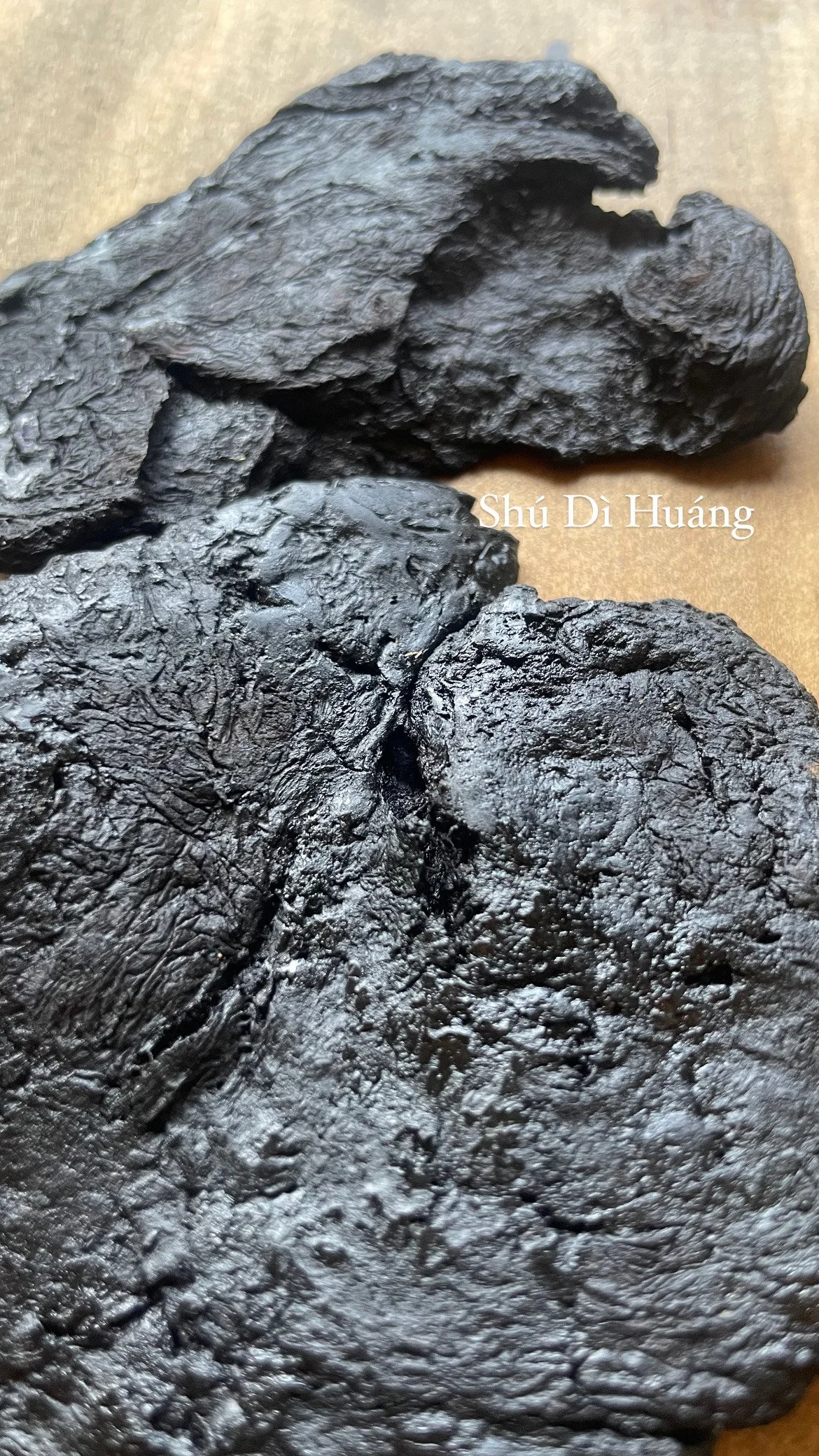Shú Dì Huáng
Shú Dì Huáng. Rehmannia Root. Chinese Foxglove.
* As a DAcHM student (Doctorate of Acupuncture and Herbal Medicine) I am highlighting single herbs but in TCM herbs for educational purposes only. Single herbs are almost ALWAYS used with other herbs (formulas). These are basic ideas to get you started and to inform/educate but they should never be a substitute for consulting with a professional TCM practitioner. All my information is sourced from Eastland Herb Materia Medica and class notes. ALWAYS do your research and make informed decisions.
Shu Di Huang 熟地黄
Chinese foxglove root cooked in wine, Rehmannia (cooked)/Radix Rehmanniae Praeparata
Shú Dì Huáng has a translation of cooked yellow Earth. Usually harvested in the Autumn season in the Chinese provinces of Henan, Liaoning, Hebei, Shandong, and Zhejiang. This Sweet, Slightly Warm herb enters the Heart, Kidney, and Liver channels and is categorized as a Tonify Blood herb and it does just that. It nourishes the Blood, the Yin, and the Essence. In understanding the nature of this herb we must know that Blood belongs to Yin and Essence Generates Blood. The Essence of someone's Jing 精 comes both in prenatal form (acquired at birth from the parents: the father's sperm and the mother's ovum) and then in postnatal form (acquired from food, water, oxygen, environment, and social conditions…closely connected with what some know as epigenetics). Equally, as one can be nourished and sustained by their Jing, one can also experience disease from depleted or injured Jing. Thus, Shú Dì Huáng Tonifiying will also Tonify the Source of Blood…generating Blood.
While this herb is most powerful in helping to treat hypertension, dizziness, palpitation, insomnia, menstruation disorders, hot flush, steaming bone disorder (advanced Blood Deficiency that is combined with Empty Heat), lower back soreness, tinnitus, hearing loss, spermatorrhea (excessive, involuntary seminal discharge), and grey hair it is rarely used alone. Because of its very cloying (sticky/stagnate) nature such as when you observe and touch the prepared form, Shú Dì Huáng (prepared form), it is quite sticky and thick. Its sweetness is similar to a more astringent treacle/molasses flavor. Because of this, it can lead to stagnation and dampness within the body as well as abdominal distention and pain. This herb is often used with other herbs that help it to move.
Shú Dì Huáng is a favored herb for Deficiency of Yin, Essence, Blood, or Kidney. Working with a TCM practitioner ensures the correct dosage and confidence in treating the correct imbalance/disease. Personally, I love this herb and use it during the seasons my body most needs often pairing it with a Dāng Guī/Huáng Qí combination and the flavor is quite dense with a subtle sweetness.
Have you ever used Shú Dì Huáng?
Talk soon…
LoLo
